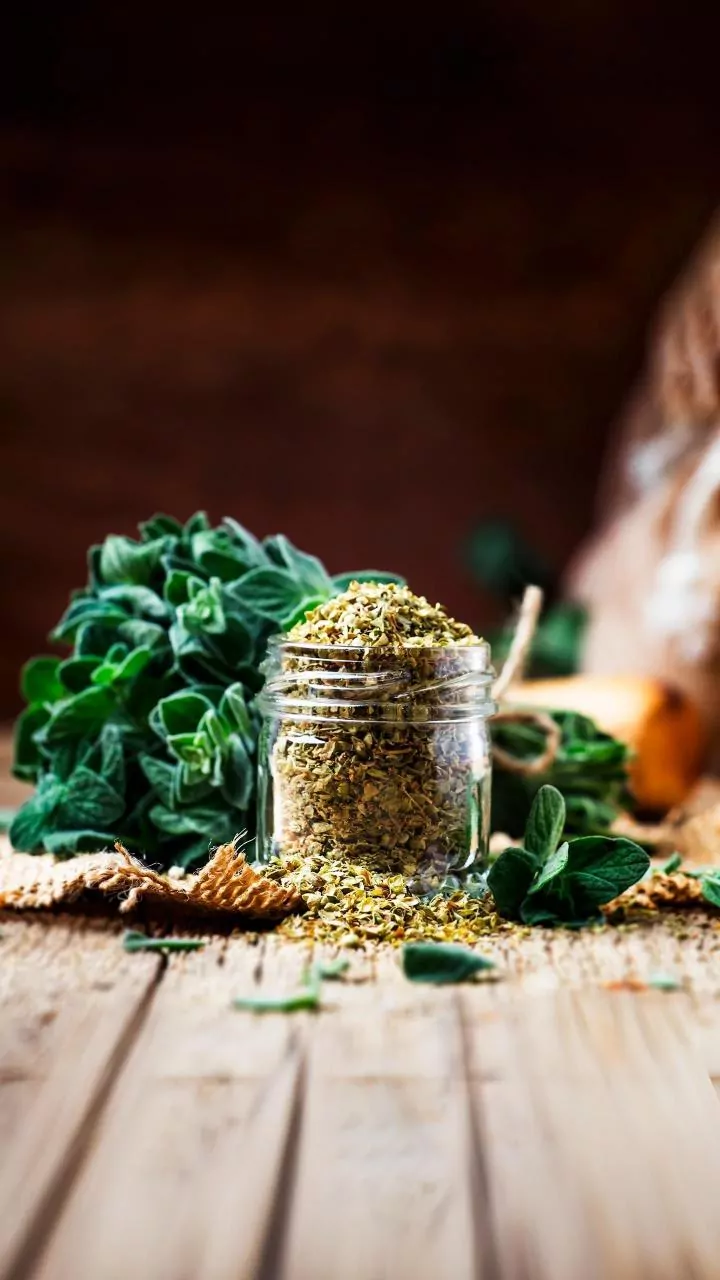Unraveling the Coconut Oil Controversy: 7 Facts to Shape Your Choice. Dive into the debate to make an informed decision
Coconut oil, a staple in many Indian households, has seen its popularity rise and
fall like the tides. From being the go-to hair oil for generations to being touted as a superfood, it's now facing scrutiny with questions arising about its actual health benefits.

Is it really as good as some claim, or is it just another hyped-up fad? Let's delve into seven important facts to help you decide whether coconut oil deserves a place in your diet and lifestyle.
The Saturated Fat Factor: Not All Fats Are Created Equal
Coconut oil is composed of primarily saturated fats – about 80-90%. This is a higher percentage compared to many other oils like olive oil or sunflower oil.
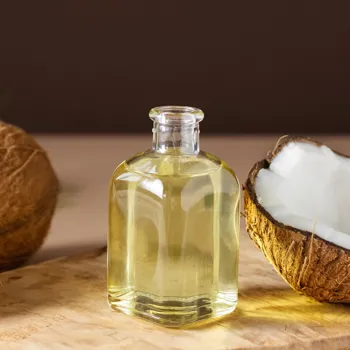
For a long time, saturated fats were painted as the villains, believed to directly contribute to heart disease by raising bad cholesterol (LDL). However, recent research is offering a more nuanced perspective.
The impact of saturated fats on cholesterol levels is complex and can vary depending on the type of saturated fat and individual factors. Coconut oil contains different types of saturated fatty acids, including lauric acid, which makes up about 50% of its fatty acid content.
Lauric acid is metabolized differently than other saturated fats and may have a less significant impact on LDL cholesterol, and some studies suggest that it may even increase good cholesterol (HDL). Despite that, most health organization suggests to watch the intake.
It shows that the kind and quantity of different fats should be observed by an individual before considering including it in regular food.
Decoding the Different Types: Virgin vs. Refined
When choosing coconut oil, you'll typically encounter two main types: virgin (or extra virgin) and refined. Virgin coconut oil is extracted from fresh coconut meat using methods that preserve its natural flavor and aroma. It typically has a distinct coconutty taste and smell.
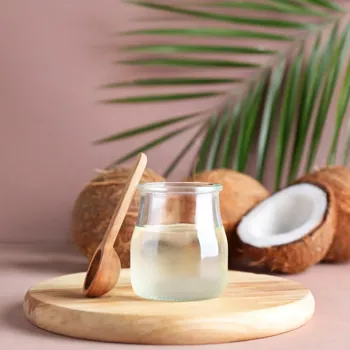
Think of it like cold-pressed oils - minimal processing, more of the natural goodies retained. Refined coconut oil, on the other hand, is processed to remove the flavor and odor.
This is often done to make it more suitable for cooking at higher temperatures or when you don’t want the coconut taste to interfere with your dish. The refining process can involve heat, chemicals, or both, potentially stripping away some of the beneficial compounds found in virgin coconut oil.
For health purposes, virgin coconut oil is generally considered the better choice due to its higher antioxidant content and less processing. Always read the label carefully to understand what kind you are buying.
Potential Benefits: Weight Management and Skin Care
Beyond the saturated fat debate, coconut oil does possess some potential health benefits. Some studies suggest that its medium-chain triglycerides (MCTs) may contribute to weight management.

MCTs are metabolized differently than long-chain triglycerides, going directly to the liver and potentially being used for energy rather than stored as fat. However, these effects are generally mild and shouldn't be seen as a magic bullet for weight loss.
Coconut oil is also widely used in skincare. Its moisturizing properties can help hydrate dry skin and its antimicrobial properties may help with certain skin conditions. For many Indians, coconut oil is a go-to for hair care, believed to promote hair growth and shine.
These benefits are primarily anecdotal, and further research is warranted to confirm these claims.
Cooking with Coconut Oil: Considerations for High Heat
Coconut oil has a reasonably high smoke point, especially refined coconut oil, making it suitable for cooking at moderate temperatures. The smoke point is the temperature at which an oil begins to break down and release harmful compounds.
Virgin coconut oil has a slightly lower smoke point compared to refined coconut oil, so it's best used for sautéing or baking at temperatures below 350°F (177°C).
Refined coconut oil can withstand higher temperatures, making it suitable for stir-frying or even deep-frying (though moderation is key). Keep in mind that prolonged exposure to high heat can still degrade the quality of the oil.
When cooking with coconut oil, it's important to use the right type for the cooking method to avoid producing harmful fumes.
Moderation is Key: Listen to Your Body
Like any food, moderation is crucial when it comes to coconut oil. While it may offer some potential benefits, overconsumption can tip the scales. The American Heart Association recommends limiting saturated fat intake to no more than 5-6% of your daily calorie intake.
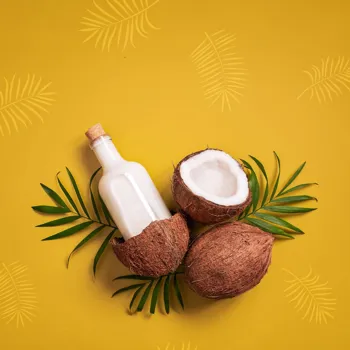
For a 2,000-calorie diet, this translates to about 13 grams of saturated fat per day. A single tablespoon of coconut oil contains around 12 grams of saturated fat, highlighting the importance of mindful consumption. Pay attention to how your body responds to coconut oil.
Some people may experience digestive issues or elevated cholesterol levels with excessive intake. It shows that keeping track of the food habits and its effect on the body, including monitoring the levels of bad cholesterol should determine if it is suitable for the body.
Beyond the Plate: Coconut Oil in Your Beauty Routine
Coconut oil has carved a niche for itself in the beauty industry. Its emollient properties make it a popular choice for moisturizing skin, especially dry skin. Many people use it as a hair conditioner, applying it to the lengths of their hair to add shine and reduce frizz.
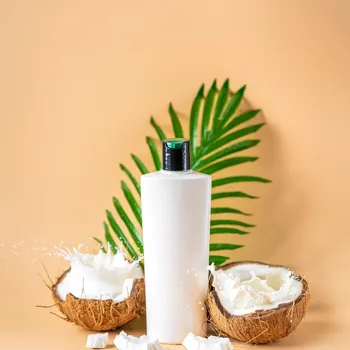
Some even use it as a makeup remover. However, it's important to note that coconut oil may not be suitable for all skin types. For some individuals, especially those with oily or acne-prone skin, coconut oil can be comedogenic, meaning it can clog pores and lead to breakouts.
Before applying coconut oil to your face, do a patch test on a small area of skin to see how your skin reacts. Also, it's also a great massage oil as it does not react with the skin and is soothing and relaxing.
Consulting a Professional: The Best Approach
The information provided here is for general knowledge and should not be considered medical advice. The best way to determine if coconut oil is a healthy choice for you is to consult with a registered dietitian or your doctor.
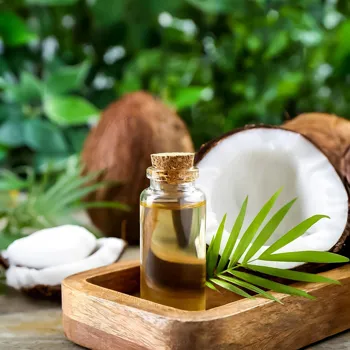
They can assess your individual health status, dietary needs, and risk factors to provide personalized recommendations.
If you have existing health conditions, such as heart disease or high cholesterol, it's especially important to seek professional guidance before making significant changes to your diet. Every body if different and reacts differently to the same food.
The suggestions and solutions are based on professional knowledge and facts which are available.
In conclusion, coconut oil is not a simple "good" or "bad" food.
Its impact on your health depends on various factors, including the type of coconut oil, your overall diet, your individual health status, and how you use it.
By considering these seven factors and consulting with a healthcare professional, you can make informed decisions about whether coconut oil deserves a place in your healthy lifestyle.
AI Generated Content. Glance/InMobi shall have no liability for the content




